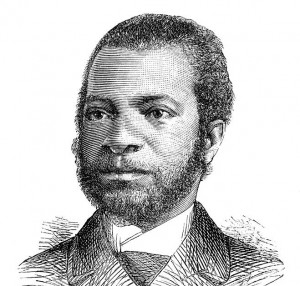
James Africanus Beale Horton was a pioneer Nigerian medical doctor of full Igbo parentage, born in Sierra Leone in 1835. His father had been settled in Freetown like many freed slaves following the interception of their ship from those who traded in humans. Horton schooled at the CMS Grammar School and the Fourah Bay College. His secondary school education was sponsored by a black West Indian who was the colony’s Chief Justice and having shown himself as cerebral, was placed under scholarship of the British government, at the request of the War Office to study medicine in England. After studies at King’s College in London and Edinburgh University, he qualified as a medical doctor. He had added another name “Africanus” while in school, apparently because of his increased sense of nationalism as an African student abroad. Horton became an officer in the British army and served in West African countries. As a man of small stature, he did well to promote himself with his mental energy, and became known for his books on tropical medicine and on politics. He rose the rank of Lieutenant Colonel and headed the Army Medical Department in the Gold Coast.
In Horton’s published work of 1868, West African Countries and Peoples, he argued against the fallacies about the negro that was being publicised by anthropologists in Europe of the mid nineteenth century. Though he agreed to the assertion that his people were backward and accepted the Western standard in his measure, Horton argued the racial disparity among Africans and Europeans had no genetic basis, but were only caused by differences in historical development. He reminded the Britons were once to the Romans, uncivilized, but had attained a status of eminence two millennia after. Africa at this time, he mentioned, had already become a centre of learning and literature. “Nature rose and fell almost as if by law,’ said Horton, ‘Was it not reasonable to suppose Africa’s turn might come again?”
When Horton retired in 1880, he started the Commercial Bank of West Africa to provide credit for entrepreneurs in the coasts. His death which occurred in 15 October 1883 terminated this dream. His works most definitely give him away as a dreamer, but of an Africa that was not in a haste to emerge.





















